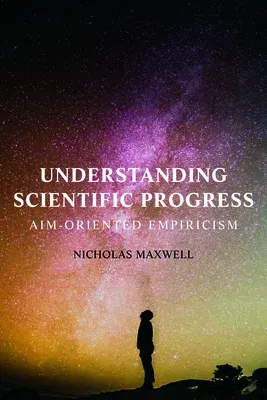Nicholas Maxwell
(Author)Understanding Scientific Progress: Aim-Oriented EmpiricismPaperback, 15 March 2017

Qty
1
Turbo
Ships in 2 - 3 days
In Stock
Free Delivery
Cash on Delivery
15 Days
Free Returns
Secure Checkout

Print Length
240 pages
Language
English
Publisher
Paragon House Publishers
Date Published
15 Mar 2017
ISBN-10
155778924X
ISBN-13
9781557789242
Description
Product Details
Author:
Book Format:
Paperback
Country of Origin:
US
Date Published:
15 March 2017
Dimensions:
22.61 x
15.24 x
1.52 cm
ISBN-10:
155778924X
ISBN-13:
9781557789242
Language:
English
Pages:
240
Publisher:
Weight:
589.67 gm